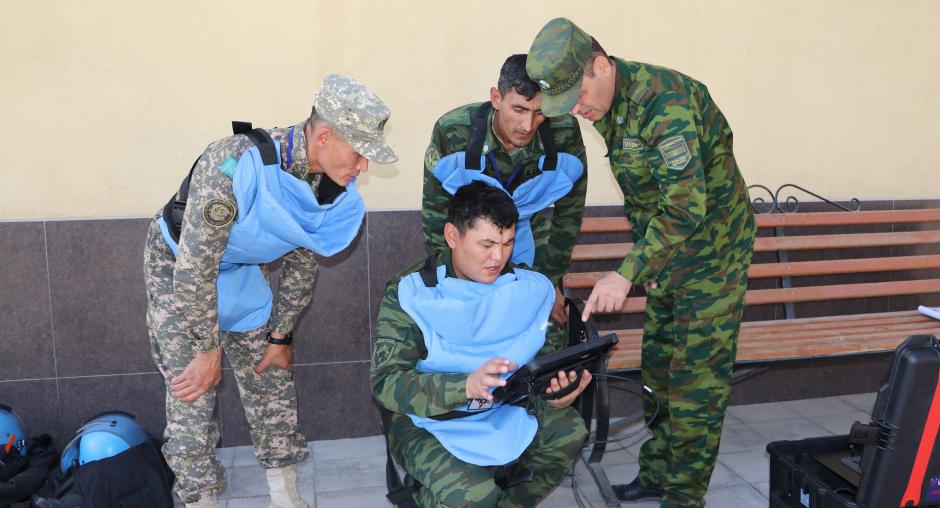Regional explosive ordnance disposal course for specialists from Central Asia conducted in Tajikistan

Thirteen specialists from Kazakhstan, Kyrgyzstan, Tajikistan and Uzbekistan completed a three-week regional Explosive Ordnance Disposal course (EOD level 2) at the Regional Explosive Hazards Training Centre (REHTC) in Chimteppa, Tajikistan, on 29 October 2021.
The course was hosted by Tajikistan’s Defence Ministry and facilitated by the OSCE Programme Office in Dushanbe. For the first time, the course was conducted by the national EOD instructors of Tajikistan’s Defence Ministry, including the REHTC’s instructors.
The activity aimed to develop the competences and enhance the qualifications of military personnel from Central Asia in detecting and identifying explosive ordnances as well as determining when they can be safely moved and transported to their final disposal. Participants also learned to simultaneously implement the destruction of multiple ordnances using the line and ring chains of individual mines and unexploded ordnance.
During the closing ceremony, a computer equipment loan agreement to the REHTC was signed between Tajikistan’s Defence Ministry and the OSCE Programme Office in Dushanbe.
Parviz Shomahmadov, National Politico-Military Officer at the OSCE Programme Office in Dushanbe, noted that the role of the REHTC in training specialists in the region in the latest methods of combating the risks of explosive hazards was important in the context of regional security.
Representing Tajikistan’s Defence Ministry, Major General Egamzod Sharaf, Deputy Chief of General Staff of the Ministry said: “I am confident that this course will have its feasible contribution in the collective work in developing the national capacities for maintaining the peace and stability in our countries.”
Lieutenant-Colonel Vitaly Gelfgat, Chief of the Office of Military Co-operation at the United States Embassy in Dushanbe, noted the importance of co-operation and exchange of experience between the countries in Central Asia in disposal of explosive hazards.
Major General Muhabbat Ibrohimzoda, Director of Tajikistan’s National Mine Action Centre, stressed the importance of applying the knowledge and skills gained in stabilizing the peace and preserving the lives of the peaceful population in the countries of Central Asia.
The project is supported by the US Department of State and Germany and is part of the OSCE’s efforts to develop a co-operative mechanism among Central Asian states to address concerns and challenges stemming from the disposal of explosive hazards.
